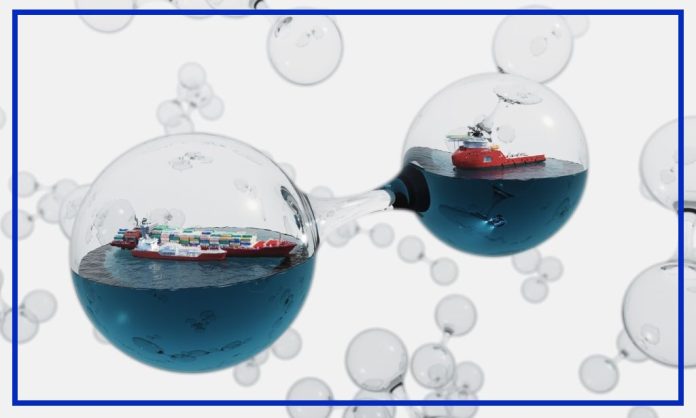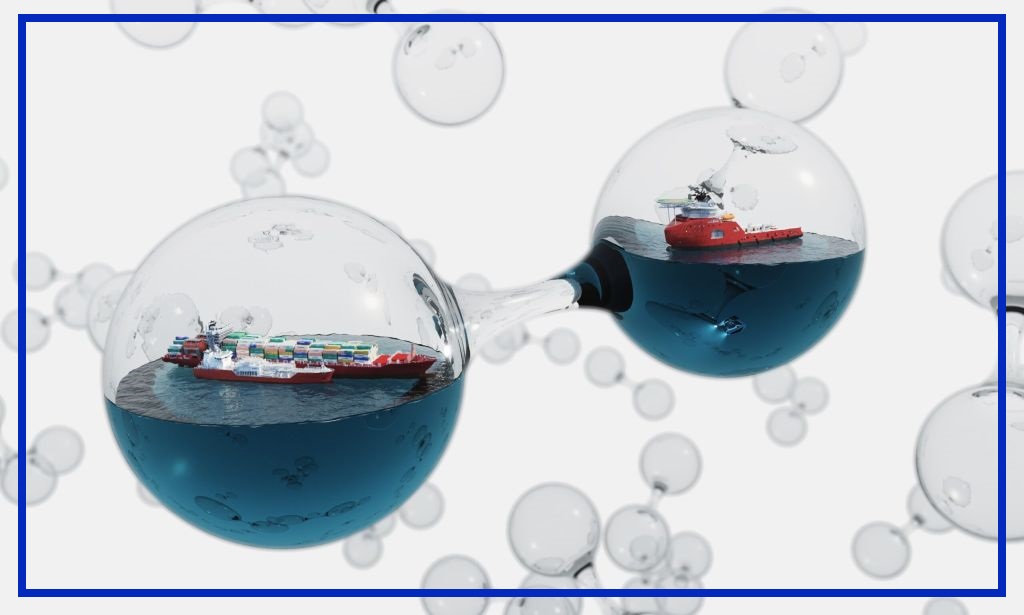
(www.MaritimeCyprus.com) Bureau Veritas (BV), a world leader in testing, inspection and certification, has launched its first classification Rules for hydrogen-fuelled ships (NR678) to support the safe development of hydrogen propulsion in the maritime sector.
The rules outline technical requirements for the safe bunkering, storage, preparation, distribution, and use of hydrogen as fuel for power generation on board. Monitoring and control systems are also covered, addressing specific safety challenges relating to the transport and use of hydrogen on ships, such as high flammability, as well as the need to store the fuel in very high pressure or low-temperature conditions.
BV’s Rules for hydrogen-fuelled ships aim to mitigate the risk of hydrogen leakage, fire or explosion, with detailed requirements for machinery and engine design, as well as the vessel’s configuration and the arrangement of fuel tanks and other systems on board. They also include prescriptions for the ventilation of hazardous areas, venting and pressure relief systems, and monitoring and safety systems including vapour and gas detection.
NR678 also covers “hydrogen-prepared” vessels, which are designed to be ready for the installation of a hydrogen fuel system at a later stage.
These classification Rules complement BV’s existing rule note (NR 547) on fuel cell power systems on board ships that was launched in 2022 in response to growing interest in the maritime industry for fuel cells, and cover all types of fuels including hydrogen. BV is currently working on around 10 projects involving hydrogen as a fuel, either as main propulsion source for smaller ships or as an auxiliary power for larger vessels.
These new rules have been informed by industry feedback and input from a wide range of stakeholders, combined with the land-based hydrogen experience of other divisions within the Bureau Veritas Group. NR678 reflects the latest state of industry knowledge on the use of hydrogen as ship’s fuel and will be periodically updated, in line with the evolution of the technology, as well as regulatory decisions from Flag States and at the International Maritime Organization (IMO).

Laurent Leblanc, Senior Vice President of technical & Operations at Bureau Veritas Marine & Offshore, said: “The objective of these new Rules is to bring the clarity needed to support industry pioneers as they harness the potential of hydrogen to deliver more sustainable shipping. We are at the start of an important technology turning point, with the introduction of hydrogen as a potential zero-carbon fuel on the road to decarbonisation. We are proud to be writing this new chapter in history together with our partnering shipowners, shipyards, and technology developers, and our colleagues across the BV Group, all of whom have contributed their expertise to help shape these rules, NR678.
“Hydrogen has great potential but its use as fuel by ships is still not common, so it is essential that all guidance is tailored to hydrogen’s specific properties, and this is reflected in these new Rules. At a time when IMO regulation on hydrogen is still being developed, BV is playing a key role in guiding the industry on the technical criteria and risk assessment processes that must be followed to enable innovation, while ensuring that the highest safety standards are met.”
Putting collaboration at the heart of this process, BV is also keen to encourage feedback from stakeholders on these Rules, in order to ensure they reflect the latest experiences and requirements of users.
For more info you can download the BV paper below:
Source: Bureau Veritas















